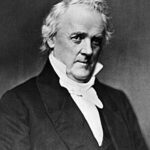The Controversial Decision
President James Buchanan’s support for the Buchanan Lecompton Constitution became one of 1857’s most divisive political choices. Kansas territorial leaders drafted this pro-slavery constitution through questionable electoral processes. Evidence suggested widespread voter fraud and intimidation during the constitutional convention elections. ⚠️ Despite overwhelming opposition from Kansas residents, Buchanan endorsed the document for congressional approval.
Electoral Fraud and Opposition
The constitutional convention elections excluded anti-slavery settlers through systematic voter suppression. Pro-slavery forces imported temporary residents from Missouri to influence voting outcomes. Legitimate Kansas residents boycotted the fraudulent process in massive numbers. When given the chance to vote on the constitution directly, Kansans rejected it overwhelmingly. 📊 The final referendum showed 10,226 votes against versus only 138 in favor.
Presidential Calculation
Buchanan prioritized Southern Democratic support over democratic principles in his decision-making process. He believed accepting the Lecompton Constitution would preserve national unity and party cohesion. 💰 Economic pressures from Southern cotton interests also influenced his controversial stance significantly.
Impact:
Democratic Party Fracture
The Buchanan Lecompton Constitution controversy shattered Democratic Party unity permanently. Senator Stephen Douglas broke with Buchanan over this decision, creating an irreparable schism. Northern Democrats felt betrayed by their president’s apparent surrender to Southern slave interests. This internal conflict weakened the party’s ability to present unified opposition to Republicans. 🔥 The split directly contributed to Lincoln’s 1860 electoral victory through divided Democratic opposition.
Acceleration Toward Civil War
Buchanan’s decision intensified sectional tensions over slavery expansion into western territories. Northern abolitionists viewed the support as proof of Southern political dominance. The controversy demonstrated that compromise on slavery issues was becoming increasingly impossible. Popular sovereignty as a solution to territorial disputes lost credibility among voters. 📉 National trust in democratic institutions declined as fraud appeared to drive policy.
Constitutional Crisis
The episode raised fundamental questions about democratic representation and federal authority. Critics argued that accepting fraudulent elections undermined constitutional principles entirely. The precedent suggested that political expediency could override legitimate popular will. 🌍 International observers questioned American democratic integrity, damaging the nation’s global reputation significantly.
